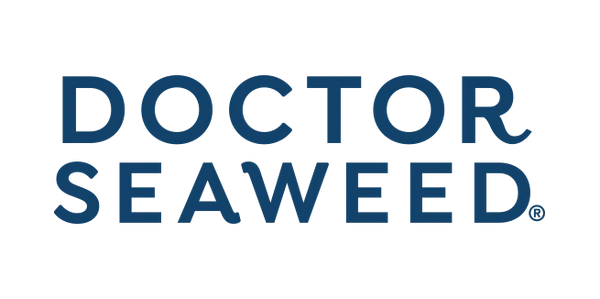Sourcing plant-based alternatives to dairy and fish can feel like a challenge
In recent years, more and more of us have chosen to go plant-based with our diet. In fact, according to The Vegan Society, interest in veganism increased sevenfold in the five years between 2014 and 2019, and the number of vegans quadrupled. In fact, almost half of all UK vegans (42%) have only identified as vegan since 2018 or later, and one in three Brits now make the effort to reduce or cut out their meat consumption.
This coincides with a growing awareness of the impact of significant meat consumption both on our health and the planet. If the world went entirely vegan, it could save 8 million human lives by 2050, and reduce greenhouse gas emissions by two thirds.
However, making the switch to a plant-based diet is a big decision, and requires careful consideration of a number of factors. Certain nutrients which are easily found in most mixed eater’s diets can be hard to come by when you go vegan. One such nutrient is iodine.
Recent research reveals that getting sufficient iodine in one’s diet can be an issue for anyone, but particularly for those on a plant-based diet. Over the long term, this can lead to significant health consequences.
What the research says
Carried out by the German Federal Institute for Risk Assessment (BfR), one study explored the differences between mixed diets and exclusively vegan diets.
The results concluded that while some vitamins are well supplemented in vegan diets, like vitamin B12, others are in short supply — particularly iodine.
The project, ‘Risks and benefits of a vegan diet’, investigated the nutrient supply of 36 participants with a vegan diet and 36 with a mixed diet. This involved analysing blood and urine samples, as well as lifestyle questionnaires and dietary protocols.
Overall, there were health benefits highlighted within the vegan diet, including high fibre intake and lower cholesterol levels. Vegan participants also showed no deficiency in vitamin B12, despite it being mainly present in dairy and fish, thanks to supplementation.
However, one cause for concern came when researchers highlighted low levels of iodine among both mixed and vegan participants, with vegans most at risk.
BfR President Professor Andreas Hensel commented: “Both diets investigated revealed a lack of iodine. However, the shortage is clearly more distinct in the vegan variant.”
In a third of the vegans who participated in the study, iodine levels were below 20 micrograms per litre. This is the limit defined by the World Health Organisation, and anything below this is considered a serious deficiency.
Why is iodine so important?

So why should we worry about getting enough iodine? Simply put, iodine is a vital and often-overlooked component in any healthy diet.
When you ingest iodine, it is used by the thyroid gland to create the hormones T3 and T4. If you suffer from an underactive thyroid and take medication, you may be familiar with T4, as it also referred to as thyroxine.
T3 and T4 are responsible for promoting our health in many key ways, including brain health. Many brain structures and systems appear to be affected by iodine deficiency, such as the hippocampus (a part of the brain which is responsible for learning and memory) and microstructures such as myelin (insulation in nerves) and neurotransmitters (responsible for transmitting thoughts into action). Including enough iodine in your diet is crucial for ensuring the health of these brain structures.
The nutrient also contributes to normal energy yielding metabolism, skin maintenance, thyroid health and growth in children.
What are the signs of iodine deficiency?
The results of the above study should come as no surprise, as iodine deficiency has already been highlighted as a significant issue in the UK. In fact, research shows that the UK is one of just two high-income countries with iodine deficiency issues, and has a worse rate than several key developing countries.
One of the most common signs of an under active thyroid that can be linked to iodine deficiency is forgetfulness, as well as a sense that your mind isn’t as sharp as it used to be. Other symptoms include swelling in the neck, hair loss, skin concerns, and fluctuations in both temperature and heart rate. Needless to say, long-term iodine deficiency can have a significant impact on your health.
Seaweed can help to tackle vegan dietary deficiencies like iodine

The reason that a plant-based diet is often associated with an iodine deficiency is because iodine itself is most commonly sourced from mixed diet staples like white fish, shellfish and dairy. Veganism forgoes these food groups, meaning plant-based eaters must seek out other sources of iodine.
And seaweed is one such plant-based source. Archaeological findings support the theory that the inclusion of seaweed in the diet was responsible for the development of a larger and more intelligent brain. Seaweed is the food group that is naturally highest in iodine, meaning it has a significant role to play in supporting your overall health and wellbeing.
Seaweed contains more iodine, gram for gram, than any other food group. Just 1 capsule of Doctor Seaweed’s Weed & Wonderful® Pure Seaweed or Immunity+ supplements daily is enough to ensure you achieve your recommended daily amount.
In independent clinical trials, our seaweed was shown to release iodine in a more sustained way, with longer retention in the body in comparison to potassium iodide.


2 comments
You’re very welcome Henrita!
Thank you for the information.